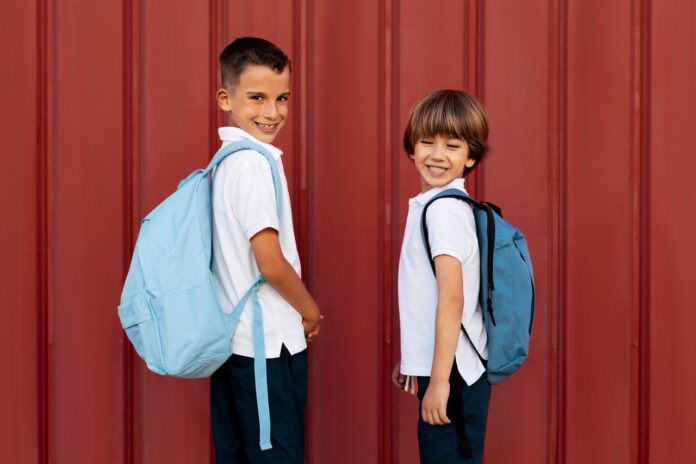A Yale-led study discovered that academically, children whose birthdays are close to the state’s cutoff date for starting kindergarten are better than their younger classmates.
According to a new study, having a high-achieving elder brother helps children succeed academically, particularly those from low-income homes.
For children who have younger siblings, their achievement has a favorable impact on those siblings once they enter middle school.
Zang, an assistant professor of sociology in Yale’s Faculty of Arts and Sciences and the study’s lead author, said, “We establish the causal effect of having an academically successful sibling on a student’s academic outcomes. While most previous studies assume these spillover effects occur across socioeconomic statuses, our findings demonstrate that they are much stronger among disadvantaged families than advantaged families, which has important implications for how we think about inequality and the policies we enact to address it.”
The researchers from yale university analyzed a one-of-a-kind dataset from the North Carolina Education Research Data Centre, which linked birth certificate information with school administrative records.
They focused on four important factors of family background: race, mothers’ educational attainment, family structure, and school poverty levels. All people in the dataset were born before 2004, when North Carolina laws allowed children born on or before October 16 to begin kindergarten before turning five.
They discovered that students born within two months of the cutoff date performed significantly better on elementary school arithmetic and reading tests than students born later.
There was an improvement in overall math and reading results in middle school for younger siblings, with an older sibling born just after the kindergarten cutoff.
The researchers suggest that by middle school, adolescents have attained a developmental period frequently characterized by uncertainty and difficulties, which may make them more susceptible to the impact of an older brother.
According to the study, students in schools with higher poverty levels were more likely to experience the sibling spillover effect than students in low-poverty schools.
The sibling spillover effect was statistically significant among disadvantaged families across all four groups analyzed.
The study discovered that the effect was statistically significant among socioeconomically advantaged families only for children whose mothers had a high school diploma or above at the time of their birth.
Only children born to moms with a high school diploma or higher were statistically significant among socioeconomically advantaged families.
The disparate effects could be explained by wealthier families’ ability to minimize the impact of older siblings on younger siblings’ academic performance.
Zang clarified. For example, she added, parents can afford to pay for younger siblings’ extracurricular activities and give them separate bedrooms, enabling them to spend more time with other kids outside the family.
A child entering school later on purpose gives them an advantage over their peers in the classroom and on the sports field. Advantaged families are also better positioned to do this than low-income families. Limiting this practice through policy could reduce the gap between those with money and those with less.
According to the study’s findings, young children from low-income homes may be more likely to consider their older siblings as role models, noting that the older sibling’s influence can vary depending on the circumstance and be either positive or negative.
Zang said, “Our work has important policy implications, especially in countries like the United States with weaker social safety nets. Disadvantaged families are more likely to face hardship than advantaged families, and negative effects from those experiences can spill over from older to younger siblings. At the same time, policies to support disadvantaged families can have a higher return because, as our study shows, positive benefits move from older siblings to younger ones.”
Journal Reference:
- Zang, E., Tan, P. L.,etal. Sibling Spillovers: Having an Academically Successful Older Sibling May Be More Important for Children in Disadvantaged Families1. American Journal of Sociology. DOI: 10.1086/724723
